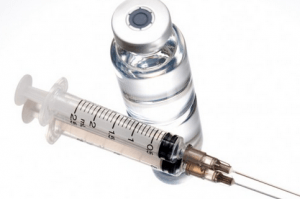HPV vaccination must be free – Health Consultant
 Ms. Jennifer Nelson, a Preventive and Occupational Health Management Consultant has called on the government to make the Human Papillomavirus (HPV) vaccination free to save the lives of women.
Ms. Jennifer Nelson, a Preventive and Occupational Health Management Consultant has called on the government to make the Human Papillomavirus (HPV) vaccination free to save the lives of women.
She explained that HPV, which was a common sexually transmitted infection, can affect the skin, genital area, and throat.
The Preventive and Occupational Health Management Consultant said in most cases, the immune system clears HPV from the body, but persistent infection with high-risk HPV can cause abnormal cells to develop, which go on to become cancer.
Ms. Nelson stated this during a strategic stakeholders’ engagement seminar organized in Tema by the Communication for Development and Advocacy Consult (CDA Consult) to discuss the “Cervical Cancer Prevention Change Paradigm Advocacy campaign.”
The CDA Consult campaign seeks to lobby authorities for a free HPV vaccination, scale up prevention, detection, and treatment towards the elimination of cervical cancer in Ghana.
Their Advocacy campaign also seeks to achieve maximum impact by demystifying the myth surrounding cervical cancer vaccination, screening, and treatment.
Ms. Nelson, who is also the Chief Executive Officer of Lifeline Haven Limited, a preventive health advocate, stressed that persistent HPV infection of the cervix (the lower part of the uterus or womb, which opens into the vagina, also called the birth canal), if left untreated, attributes to about 95 percent of cervical cancers.
She noted that it took 15–20 years for abnormal cells to become cancer, but in women with weakened immune systems, such as untreated HIV, this process could be faster and take 5–10 years.
“Risk factors for cancer progression include the grade of oncogenicity of the HPV type, immune status, the presence of other sexually transmitted infections, the number of births, young age at first pregnancy, hormonal contraceptive use, and smoking,” Ms. Nelson stated.
Ms. Nelson said boosting public awareness and access to information and services were key to prevention and control across the life course.
She stressed that being vaccinated at age 9–14, is a highly effective way to prevent HPV infection, cervical cancer, and other HPV-related cancers.
“Screening from the age of 30 (25 years in women living with HIV) can detect cervical disease, which, when treated, also prevents cervical cancer.
“At any age with symptoms or concerns, early detection followed by prompt, quality treatment can cure cervical cancer,” Ms. Nelson noted.
Mr. Francis Ameyibor, Executive Director, CDA Consult, quoted the World Health Organisation (WHO) response initiatives to support the need for a rapid Cervical Cancer Prevention Change Paradigm Advocacy campaign.
He reminded African governments in particular of their commitment to eliminate cervical cancer as a public health problem and adopt measures to adhere to the WHO Global Strategy, which defines elimination as reducing the number of new cases annually to 4 or fewer per 100,000 women.
The CDA Consult Executive Director stressed that the WHO has set three targets to be achieved by the year 2030 to put all countries on the pathway to elimination cervical cancer in the coming decades.
The targets include 90 percent of girls vaccinated with the HPV vaccine by age 15; 70 percent of women screened with a high-quality test by ages 35 and 45; and 90 percent of women with cervical disease receiving treatment.
Mr. Ameyibor said the national campaign seeks to combine proactive advocacy skills and strong communication networks to congregate health professionals, human rights advocates, gender activists, religious adherents, and communication practitioners to embark on a new paradigm of advocacy and support.
He stressed that the CDA Consult Change Paradigm Advocacy campaign for free HPV cancer vaccinations also focused on scaling up prevention, detection, and treatment towards the elimination of cervical cancer in Ghana.
Dr. Chris Kpodar, a former United Nations Consultant for Africa and the Middle East who chaired the strategic stakeholders’ engagement seminar, emphasised the need for authorities to roll out a national strategy to get all young women vaccinated against cervical cancer.
Dr. Kpodar, a member of the Board of Directors of CDA Consult, stressed that the highest rates of cervical cancer incidence and mortality are in low- and middle-income countries.
He said this reflects major inequities driven by a lack of access to national HPV vaccination, cervical screening and treatment services, and social and economic determinants.
Dr. Kpodar, who is also Chairman and Chief Executive Officer of Solomon Investments Ghana Limited, noted that prophylactic vaccination against HPV and screening and treatment of pre-cancer lesions were effective strategies to prevent cervical cancer.
Source: GNA
